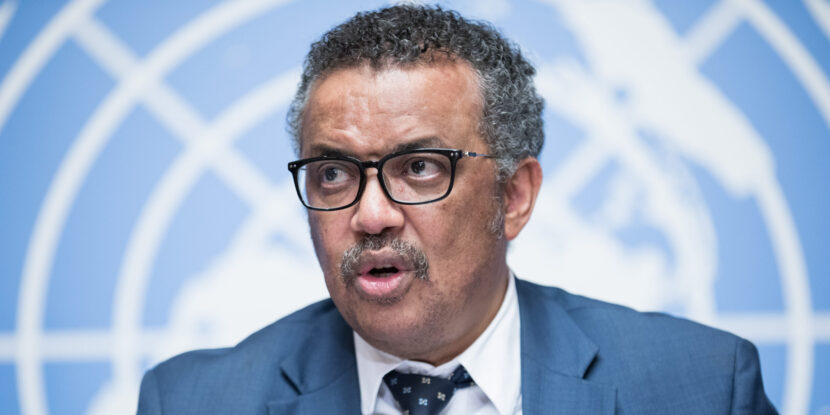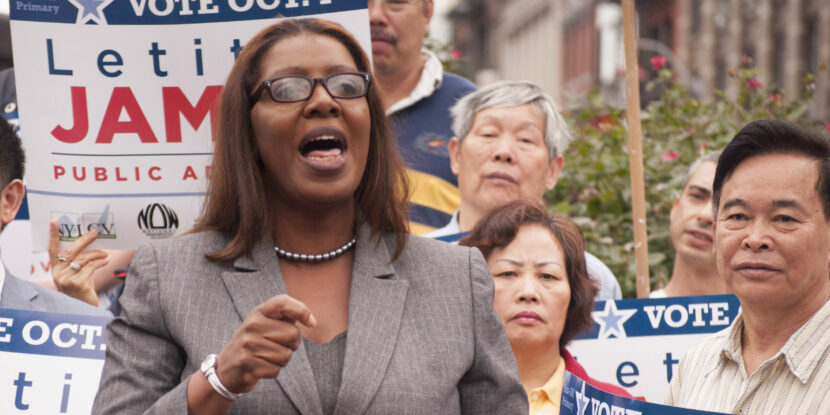
PULSE POINTS:
❓What Happened: Members of the World Health Organization (WHO) have agreed on the text of a legally binding treaty focused on improving responses to future pandemics.
👥 Who’s Involved: The World Health Organization, WHO member states, pharmaceutical companies, and manufacturers. U.S. negotiators abstained from the final talks.
Your free, daily feed from The National Pulse.
📍 Where & When: The agreement was reached on Wednesday, following three years of discussions among member states. Formal adoption is expected at the World Health Assembly next month.
💬 Key Quote: “A significant milestone in our shared journey towards a safer world,” according to WHO director-general Dr. Tedros Adhanom Ghebreyesus.
⚠️ Impact: The treaty mandates that countries ensure global access to pandemic-related drugs in future outbreaks. Manufacturers must allocate 20 percent of their production to the WHO, and at least 10 percent must be donations. It also includes a proposal for a Pathogen Access and Benefit-Sharing System for faster data exchange.
IN FULL:
The World Health Organization (WHO) has settled on the text for a legally binding treaty supposedly aimed at enhancing global preparedness for future pandemics. This decision seeks to avoid the chaos and competition over resources that were prevalent during the COVID-19 pandemic.
This newly crafted pact emphasizes rapid data sharing on emerging diseases, enabling scientists and pharmaceutical firms to speed up the development of vaccines and treatments. For the first time, the WHO will have a comprehensive view of global supply chains related to personal protective equipment such as masks and medical gowns.
Dr. Tedros Adhanom Ghebreyesus, the WHO’s director general, described the agreement as “a significant milestone in our shared journey towards a safer world.” He further noted that despite global divisions, this demonstrates nations’ ability to collaborate on common challenges.
The treaty, culminating after three years of discussion among member states, is only the second in the WHO’s history—the first being the 2003 tobacco control agreement. It awaits formal approval at the upcoming World Health Assembly.
Under the treaty, countries must ensure the global availability of pandemic-related medications in future outbreaks. The terms require manufacturers to allocate 20 percent of vaccine, therapeutic, and diagnostic production to the WHO, distribute 10 percent as donations, and offer the rest at accessible prices.
The U.S. was absent from the closing negotiations following President Donald J. Trump’s withdrawal decision, meaning the country will not adhere to the agreement once it departs from the organization in 2026.
Some Members of Parliament (MPs) in Britain expressed skepticism about a pandemic treaty in 2023, arguing it could allow the globalist WHO to have power over lockdowns, quarantine, and vaccines.

PULSE POINTS:
❓What Happened: New York’s Democrat Attorney General Letitia James is investigating whether President Donald J. Trump’s tariff pause facilitated insider trading by administration officials or another individual who may have been informed ahead of the April 9 announcement. James’s latest lawfare efforts come as she faces a criminal referral to the U.S. Department of Justice (DOJ) over allegations of mortgage fraud uncovered by Bill Pulte, the director of the Federal Housing Finance Agency.
👥 Who’s Involved: President Trump, Letitia James, White House Chief of Staff Susie Wiles, Trade Representative Jamieson Greer, Director of the Federal Housing Finance Agency Bill Pulte, and Democrat Sens. Elizabeth Warren, Adam Schiff, and Ruben Gallego.
Your free, daily feed from The National Pulse.
📍 Where & When: The investigation was confirmed on April 16, 2025, prompted by a series of U.S. market trades before the tariff pause.
💬 Key Quote: “It’s entirely appropriate to have an investigation to make sure that Donald Trump, Donald Trump’s family, Donald Trump’s inner circle didn’t get advance information and trade on that information,” said Senator Elizabeth Warren (D-MA).
⚠️ Impact: Democrats in the Senate are running cover for James’s latest law effort against Trump.
IN FULL:
New York’s Democrat Attorney General, Letitia James, is launching a new lawfare campaign against President Donald J. Trump, insinuating potential insider trading instances linked to the White House’s recent pause of reciprocal tariffs. Confirmed to be underway on April 16, the New York AG’s inquiry purports to determine whether Trump or his associates had prior knowledge of the tariff actions, which preceded a significant upturn in the stock market. However, there is mounting speculation that James’s investigation of Trump is meant to distract from her own criminal referral to the Department of Justice (DOJ) over allegations of mortgage fraud.
President Trump’s announcement of the tariff pause, to allow bilateral trade negotiations with over 70 nations to take place, was preceded just hours before by two posts on Truth Social where the America First leader stated, “BE COOL! Everything is going to work out well. The USA will be bigger and better than ever before” and “THIS IS A GREAT TIME TO BUY!!! DJT.” The subsequent surge in the financial markets—with several trades logged just before the pause was announced—make up the core of the newest allegations underpinning the lawfare effort.
Speaking with Jake Tapper on CNN’s State of the Union earlier this week, Senator Elizabeth Warren (D-MA) appeared to have foreknowledge of Letitia James’s investigation. “It’s entirely appropriate to have an investigation to make sure that Donald Trump, Donald Trump’s family, Donald Trump’s inner circle, didn’t get advance information and trade on that information,” the Massachusetts Democrat said. How Trump could engage in insider trading on a decision and announcement that he would make is unclear.
Closer examination reveals James’s inquiry—and the justifications for it provided by a number of Democrat lawmakers—is little more than partisan gamesmanship. Ignored by James is the fact that rumors of a potential pause had circulated on social media platforms for days prior to the announcement—with the “Walter Bloomberg” X (formerly Twitter) account posting that a pause was under consideration by Trump on Monday, April 7. However, following a swift White House denial, the post was deleted.
Additionally, the two Trump posts on Truth Social on the morning of April 9 could easily be interpreted as an indication that the White House would announce changes to the imposition of trade tariffs, which any observant investor would have responded to by making options trades. Further, because Truth Social is widely accessible, the posts are considered public information and, therefore, could not constitute the secretive exchange of information typically associated with insider trading. The fact is that options traders frequently make bets on short-term market shifts, and the trades on April 9 could easily have occurred without any foreknowledge—though the social media buzz and Trump’s Truth Social posts could have influenced the moves.
The Trump White House is correctly dismissing Senate Democrat allegations and the New York Attorney General’s inquiry as little more than partisan lawfare rather than substantive legal accusations of malpractice. For Letitia James, though, the confirmation of her investigation into Trump and the tariff pause may serve an ulterior purpose—namely, distracting from her own criminal referral to the DOJ on allegations made by the Federal Housing Finance Agency (FHFA) Director Bill Pulte that the New York Attorney General engaged in several instances of mortgage fraud. James has dismissed the allegations, ironically accusing the Trump administration of weaponizing the government against her.
In 2024, Letitia James and the New York Attorney General’s office were behind several lawfare actions targeting Trump to derail his presidential re-election bid. However, those efforts proved unsuccessful, with Trump winning the election in a landslide.
show less

 2 months ago
5
2 months ago
5








 English (US) ·
English (US) ·